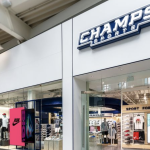Collective Brands Inc. reported Q4 sales climbed 12% to $777 million due to the acquisition of Stride Rite and particularly strength at Saucony and Sperry Top-Sider. But slower traffic at Payless ShoeSource caused the company to post a slightly higher-than-expected loss for the period. Excluding a pre-tax purchase accounting expense of $29 million, or 42 cents a share, the net loss equaled 31 cents a share. The loss also included incremental pre-tax interest expense of $14 million, or 14 cents a share, to cover debt from the SRR acquisition.
Fourth quarter sales were $611.6 million for Payless and $165.2 million for Stride Rite. Comps declined 6.8% on a calendar comparable basis as a result of lower traffic at Payless stores.
On a conference call with analysts, company President and CEO Matt Rubel said “the core Payless customer, a premium mass, or a value type customer has been particularly impacted by the multiple economic challenges many consumers face today.” He expects lower year-over-year traffic for at least the next six to nine months. On the positive side, Rubel noted that Payless was able to gain market share despite slow growth in the value channel.
“Our share gain, we believe, is a result of our strategy and would not have happened if we were still competing only on price as we did just a few years ago,” said Rubel. Payless, he added, plans to “to manage inventory and expenses, very carefully, so we can be as flexible as possible in the current environment.”
Branded footwear sales rose to 47% of overall sales at Payless versus 30% in the prior year, and produced 26% more gross profit dollars per five foot section over the periods. On the brighter side, strong sales in women's casual and canvas footwear helped drive an 8% increase in average unit retail prices for Payless. In addition, Payless international sales grew 3%, led by a gain over 20% in Latin America.
Regarding early spring trends at Payless, Rubel said the overall casual business continues to be “very strong,” with flats and ballet shoes, mocks, and nautical themed shoes doing well.
Double digit increases at Sperry Top-Sider and Saucony led growth in Stride Rite wholesale, and Rubel said wholesale backlogs are “up significantly” for the first half of 2008. Sperry Top-Sider continues to perform very well due to the expansion of its women's business into an all year around line. Vulcanized and nautical casual products have been particularly strong as well. Saucony increased its market share in the specialty running channel due to new products such as the Hurricane 10, aesthetic design improvements across the entire line, and strategic expansion of its distribution channels. Saucony also successfully launched apparel into the run specialty trade channel a few months ago. Declines were seen at Keds and Stride Rite Kids.
Rubel said the company is on plan with its Stride Rite integration, and has also made significant progress in its supply chain initiative by opening a distribution center in Redlands, CA, and beginning construction on another one in Brookeville, OH. As part of this effort, Collective Brands last week announced it will be closing two distribution centers in Burnaby, British Columbia, and Huntington, IN, affecting 180 workers. The move will eventually leave Stride Rite with three distribution centers, including another in Louisville.
Rubel also said Collective Brands is continuing to manage cost increases coming out of China.
“On a relative basis, we know we're doing better than the average company using contract manufacturing in China,” said Rubel. “From a long term perspective we are working with our factory partners on opportunities for production inland and north in China as well as other countries such as Indonesia, India, and expanding our existing presence in Vietnam. We are able to manage costs by using a number of tools at our disposal such as more direct sourcing, the consolidation of raw material suppliers, and the consolidation of factories.”
PSS declined to provide FY08 guidance, but noted that it will likely miss its long-term target of a low single-digit comparable store growth rate for the next six to nine months. Collective brands intends to mitigate the anticipated near term sales environment with prudent inventory control and expense management.













